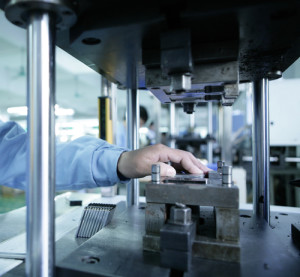Rapid Injection Molding
Plastic Manufacturing Made Easier
 The technology of machining is rapidly growing and a wide variety of plastic products today are produced using different methods such as rapid injection molding and prototype injection molding. Products such as toys, bottle caps, and packaging are among the products made from these processes. People sometimes want to test a machined plastic prototype first, as prototyping allows them to create changes to the product until the desired effect is finally reached. Rapid injection molding is a process in manufacturing plastic products. Thermoplastic materials and thermosetting plastic materials are used in this process. It is one of the most common ways of mass-producing plastic parts. A specially-designed mold for this material is used and the plastic material is fed into the injection machine where it will be heated. Colorants are also added, and it will be cooled inside the mold cavity. Plastic products such as packaging and plastic bottles are produced through the rapid injection molding process. Materials such as polypropylene, nylon, or polycarbonate can be used in rapid injection molding. The texture specified for the products are added in to the mold cavity so little time is spent on finishing the product. Plastic prototypes can also be made through the method called prototype injection molding. Prototype injection molding makes use of a machined plastic prototype, which is a rapid prototyping fabrication process to create prototypes made of plastic. A computer numerical controlled machine or CNC removes the plastic prototype from the machine. Any thermoplastic material for prototypes can be used for this molding process. Prototype injection molding allows the customer to see the prototype of their product and create the changes he wants to the product. The prototype injection molding process has a relatively fast turnaround time for plastic products. Machined plastic prototypes are better than those produced by rapid prototyping because they provide a more accurate representation of the products. The growth of plastic production technology and its flexibility is a good sign to those who demand creativity in their products. Creating machined plastic prototypes can help them create products that are as close to perfect as possible. Indeed, these prototypes are crucial to plastic manufacturing.
The technology of machining is rapidly growing and a wide variety of plastic products today are produced using different methods such as rapid injection molding and prototype injection molding. Products such as toys, bottle caps, and packaging are among the products made from these processes. People sometimes want to test a machined plastic prototype first, as prototyping allows them to create changes to the product until the desired effect is finally reached. Rapid injection molding is a process in manufacturing plastic products. Thermoplastic materials and thermosetting plastic materials are used in this process. It is one of the most common ways of mass-producing plastic parts. A specially-designed mold for this material is used and the plastic material is fed into the injection machine where it will be heated. Colorants are also added, and it will be cooled inside the mold cavity. Plastic products such as packaging and plastic bottles are produced through the rapid injection molding process. Materials such as polypropylene, nylon, or polycarbonate can be used in rapid injection molding. The texture specified for the products are added in to the mold cavity so little time is spent on finishing the product. Plastic prototypes can also be made through the method called prototype injection molding. Prototype injection molding makes use of a machined plastic prototype, which is a rapid prototyping fabrication process to create prototypes made of plastic. A computer numerical controlled machine or CNC removes the plastic prototype from the machine. Any thermoplastic material for prototypes can be used for this molding process. Prototype injection molding allows the customer to see the prototype of their product and create the changes he wants to the product. The prototype injection molding process has a relatively fast turnaround time for plastic products. Machined plastic prototypes are better than those produced by rapid prototyping because they provide a more accurate representation of the products. The growth of plastic production technology and its flexibility is a good sign to those who demand creativity in their products. Creating machined plastic prototypes can help them create products that are as close to perfect as possible. Indeed, these prototypes are crucial to plastic manufacturing.